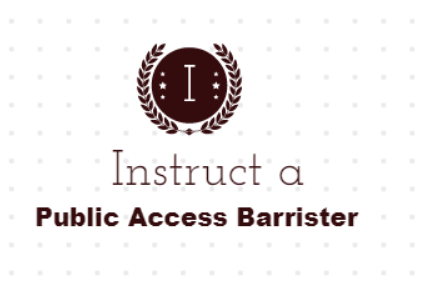There is a significant backlog of cases in the family courts, both in terms of public and private law family proceedings. While there has historically been a backlog of cases this situation was worsened by the Covid pandemic. The majority of hearings could not take place in-person and remote hearings became the norm.
By Poonam Bhari, barrister at 3PB Chambers
The family courts are reverting back to in-person hearings, albeit some remote hearings continue to take place. In an effort to address the backlog and move towards looking at an earlier resolution of family disputes the Government funded a mediation voucher pilot scheme providing the sum of £500 per family to enable suitable families to avail themselves of the opportunity to resolve issues with the assistance of a mediator, in the anticipation of reducing the demand on the family courts.
Various options are being considered and consulted on by the Government, including whether primary legislation should be brought in mandating mediation in private law child arrangement and financial remedy cases before an application can be made to the family courts, unless an exemption applies.
The consultation period runs from 23/03/23 to 15/06/23, the detailed information and reading materials are available at https://www.gov.uk/government/consultations/supporting-earlier-resolution-of-private-family-law-arrangements/supporting-earlier-resolution-of-private-family-law-arrangements. Responses can be sent by 15/06/23 to [email protected].
Delays not only negatively impact on children and their parents, but where there is a long delay and a status quo has been established for a child for a long time, the court may be reluctant to change the child’s living arrangements, whereas had the case been dealt with in shorter timescale the court would have been willing to do so. In F (Shared Residence) [2009] EWCA Civ 313, the mother appealed against an order for shared residence with the children living with their father at the former matrimonial home, when the children had been settled and living with their mother for 12 months before the decision had been made. The court rejected the mother’s status quo argument in this case. It is clear that delays are not in the interests of the children and their parents.
The President of the Family Division, Sir Andrew MacFarlane, has reinforced the expectation that judges rigorously apply the Public Law Outline (PLO) and that cases should end in 26 weeks. In ‘A View from The President’s Chambers November 2022, all involved in the family justice system are reminded that there is an onus to “reconnect with the core principles of the PLO as set out in the Family Procedure Rules 2010, PD12A”, so that public law cases meet the statutory requirement of completing within 26 weeks. Since 2015/16 there has been an increase in the number of public law s. 31 Children Act applications, which together with the pandemic has had an impact in creating a huge backlog of cases and this in turn has increased the delay in decisions being made in the best welfare interests of children and families.
The recalibration of focus to the requirements of the PLO and reminder that delay is not in the welfare interests of children and should be avoided where possible, involves a deep dive into the processes of public law hearings.
The elements that may build in delays to a case need to be considered, for example seeking an expert report where there is already a professional report and information before the court dealing with the issue. A Part 25 application for an expert assessment should only be made where it is ‘necessary’ and the court is to consider whether it is indeed necessary, rather than desirable, to enable the court to make a just and fair determination of the proceedings.
To an extent there has been a culture shift in the family law sphere and terminology such as ‘Early Neutral Evaluation’, ‘Alternative Dispute Resolution’ and ‘Arbitration’ are more commonly used. There is a recognition that families should be made aware of their options and the various methods available that they can participate in to try to resolve disputes. Costs have a pernicious way of increasing in private law and financial remedy proceedings, where legal aid is not available to either party, the more adversarial the dispute and the longer it continues, so there is a financial benefit in early resolution of cases where possible. The potential emotional and psychological toll that adversarial proceedings can have on the participants also cannot be ignored. If family disputes can be resolved as quickly and seamlessly as possible, with the right support, the parties can hopefully move on with their lives.
One big change that has taken place in 2022 with the coming into force of the Divorce, Dissolution and Separation Act 2020, has been the ending of the culture of blame and accusations, with the introduction of no fault divorce, whereby a spouse or a separating couple can apply for divorce, saying that the marriage has irretrievably broken down. The aim is a reduction in conflict which in turn has a detrimental effect on families.
The backlogs and delays must be addressed, and this will require all interested parties to work together to explore how existing processes can be sharpened as well as new processes that can be introduced to address the problem.
Poonam Bhari is a barrister at 3PB Chambers and a member of the Family Procedure Rule Committee




